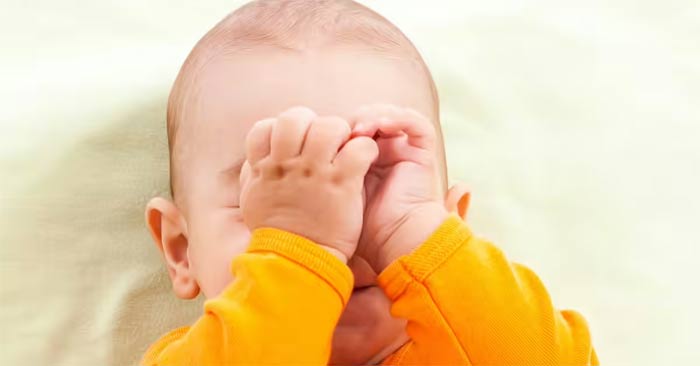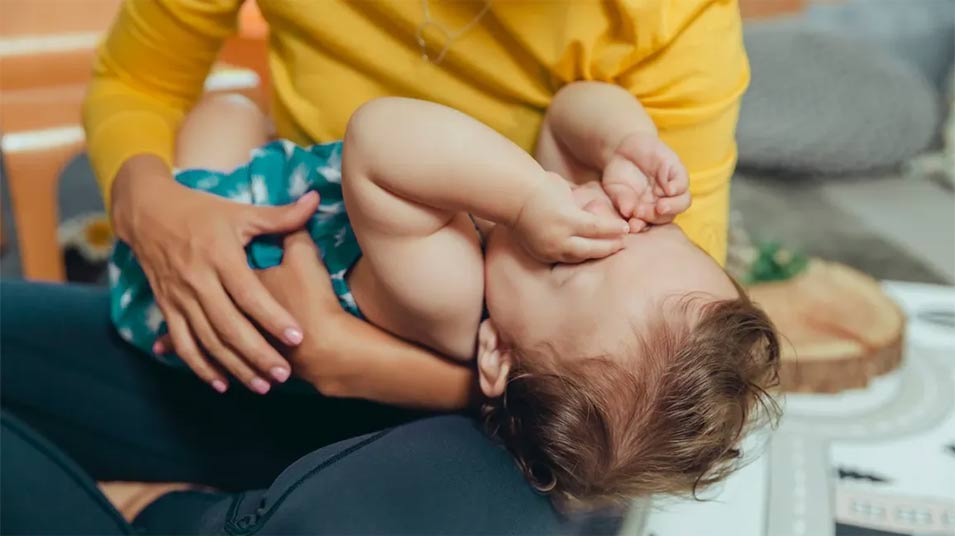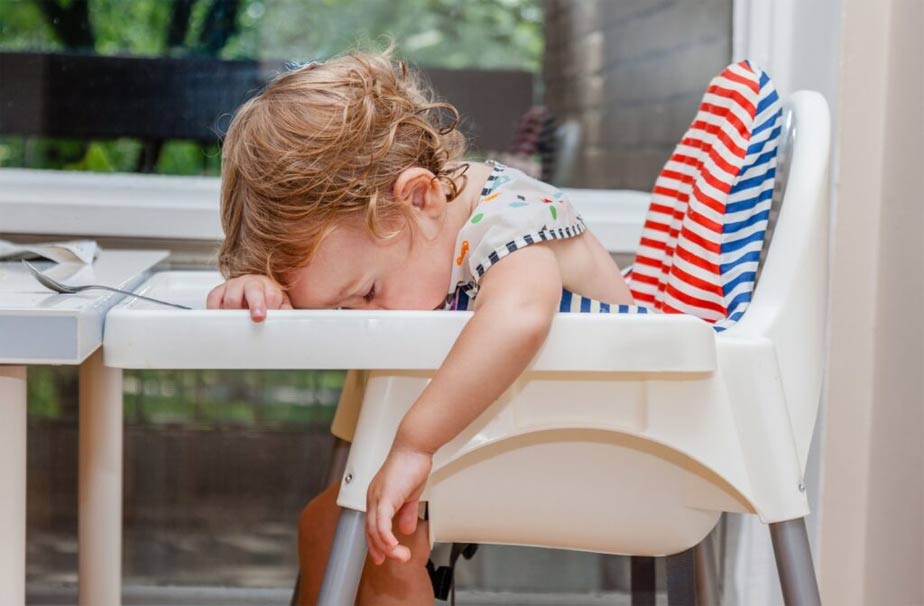Why do babies rub their eyes?
Eye rubbing in children is a sign that they are anxious or feeling insecure and needs to be stopped to avoid getting hurt. Here's what you need to know about eye rubbing in children .

Rubbing your eyes in babies can be a sign of exhaustion and sleepiness. However, recent studies have shown that too much screen time in young children from using devices like smartphones can cause eye strain, which can lead to more rubbing. Here are the reasons why babies rub their eyes and how to prevent and control this condition .
Why do babies rub their eyes?
Besides being sleepy and tired, children may rub their eyes when:
Curious children
Babies often become curious as they develop fine motor skills. One of the activities they do is experiment by touching every part of their body to understand how their body will react.
Baby surprised or delighted
If you notice that your baby is rubbing his eyes despite not being tired, it may be because he is getting incredible visual stimulation from doing so. Babies love the feeling of closing their eyes, rubbing them, and repeating the action to see all those images. You may also notice that when you close your eyes and rub them, you can see images and lights in your closed eyelids. This may be why your baby is rubbing his eyes so often.
Prevention: Distract your baby by showing him something more interesting. Since his attention span is short, he will be easily distracted.
Baby sleepy
Lack of sleep can cause sleepiness and eye rubbing in babies. When your baby rubs his eyes and yawns, it means he is sleepy and tired. But how does eye rubbing help your baby? When your baby is tired, his eyes are tired too. Just as massage helps soothe sore muscles, eye rubbing can help when your baby is tired. This will help relieve pain and tension in the eye muscles, around the eyes and on the eyelids.
Prevention: Eye rubbing and yawning are common signs that your baby is ready for sleep. If you notice these first signs of sleepiness, put your baby to bed right away to avoid fatigue and eye rubbing.
Understand your baby's sleep habits. Establishing a regular sleep routine, including naptimes and bedtimes, can help prevent eye rubbing due to lack of sleep. Once you have established a good sleep routine, make sure your baby goes to bed at the same time even when you are away from home. This will help keep your baby from getting overtired. Without stimulation, your baby will not rub his eyes.

Dry eyes
Babies may also rub their eyes when they are too dry. The eyes are protected by a layer of tears, which evaporates when exposed to air for a long time. This leads to dry eyes, which is uncomfortable for babies and they will instinctively try to soothe themselves by rubbing their eyes. This is because rubbing stimulates tears, which help restore moisture to the eyes.
Foreign body in eye
Babies may also rub their eyes if there is a foreign object causing irritation. There may be crusts around the eye, lint, or bits of dust in the eye. These particles can irritate the eye to the point that your baby may want to rub it vigorously. However, rubbing your eyes in this case can cause more harm than good because the particles can scratch the surface of the eye.
If you see your baby rubbing his eyes and crying and his eyes turn red, this is a sure sign that there is a grain in his eye. In this case, soak a cotton ball in cold water and gently wipe it over the eye to wash away the grain. Wipe away the crust with a clean cotton towel. If irritation persists, take your baby to the doctor.
Prevention: Keep your baby away from dusty areas. If this is unavoidable, protect your baby's eyes with children's sunglasses.
Conjunctivitis
In the case of conjunctivitis, there will be a sticky discharge from inside the eye as well as redness and watery eyes.
What to do
- Clean and rinse eyes with clean tap water three to four times a day.
- Use a sterile cotton ball to wipe away any sticky discharge from the eye.
Wait a day or two; if the redness and watering do not go away, see your doctor. - doctor.
Keratoconus
Research suggests that persistent eye rubbing in children may be associated with the development of conditions such as keratoconus, a progressive thinning of the cornea. Diagnosis of this condition in young children is difficult, as these patients are less likely to report vision problems, and clinical examination is often unremarkable. Screening for keratoconus should be considered in children with atopic predisposition and eye rubbing behavior regardless of age, even in those with no other associated medical conditions and a negative family history.

How to prevent and limit children from rubbing their eyes
If your baby has a habit of rubbing his eyes, try putting mittens on him. You can also pull his long-sleeved shirt over his arms to keep him from rubbing his eyes.
You can also keep your baby's hands away from his face if you think he might rub his eyes. Or, you can distract him by giving him a toy or playing music to take his mind off it.
Knowing the possible causes of eye rubbing in infants and what precautions to take can help avoid eye injuries or abrasions from excessive rubbing. It is also important to know the signs that may require medical intervention.
- Babies do not respond to flashing lights after the newborn stage.
- Except when staring at an object, if the child has strabismus.
- Children constantly have strange eye colors when taking pictures with flash.
- Both eyes work differently.
- Reaction to bright light or eye infection that doesn't seem to go away.
- It is necessary to tilt your head when trying to look at a particular object.
- Can't follow toy with eyes.
- Droopy eyelids
- Painful and itchy eyes
- Watery eyes
You should read it
- ★ Unintentional habits make your eyes grow more and more
- ★ 6 'golden habits' keep eyes from increasing
- ★ The reason why the eyes wake up every morning and full of rust will surely surprise you
- ★ 20 interesting facts about EYES may be unknown
- ★ Children with anorexia must how to help their babies eat well?